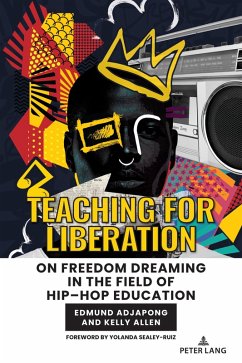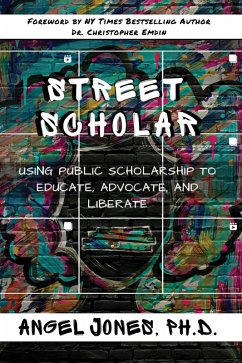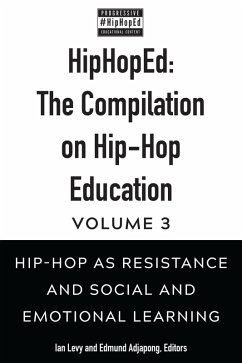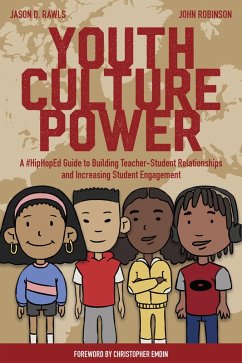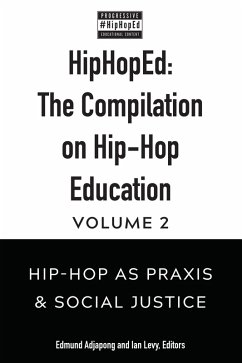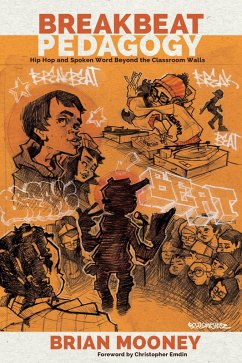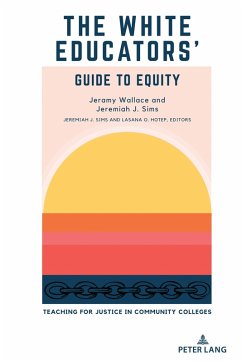
Teaching for Liberation (eBook, PDF)
On Freedom Dreaming in the Field of Hip-Hop Education
Versandkostenfrei!
Sofort per Download lieferbar
30,95 €
inkl. MwSt.
Weitere Ausgaben:

PAYBACK Punkte
15 °P sammeln!
In celebration of hip-hop's 50th anniversary, the authors interviewed scholars and community-engaged educators who have contributed to the field of hiphop and education with the goal of reflecting on established research and activism within the field of hip-hop and education. Hip-hop is a culture and art form that was created to advocate and share the experiences and expressions of groups who have been pushed to the margins of society by oppressive practices. Since the 1970s, hip-hop has evolved to become a culture that transcends global borders and all industries including education. The fiel...
In celebration of hip-hop's 50th anniversary, the authors interviewed scholars and community-engaged educators who have contributed to the field of hiphop and education with the goal of reflecting on established research and activism within the field of hip-hop and education. Hip-hop is a culture and art form that was created to advocate and share the experiences and expressions of groups who have been pushed to the margins of society by oppressive practices. Since the 1970s, hip-hop has evolved to become a culture that transcends global borders and all industries including education. The field of hip-hop and education continues to contribute to educational research with innovative concepts and philosophies, scholars have and continue to interrogate how hip-hop can be used and incorporated across all educational spaces.
In this text, scholars and educators were given an opportunity radically dream about the future of hip-hop and education. Their thoughts and perspectives were analyzed and interrogated through the context of educational research. The authors hope that this text serves as a pathway towards not just dismantling oppressive educational structures but dreaming and building what empowering and liberatory education through hip-hop could be across all educational spaces.
In this text, scholars and educators were given an opportunity radically dream about the future of hip-hop and education. Their thoughts and perspectives were analyzed and interrogated through the context of educational research. The authors hope that this text serves as a pathway towards not just dismantling oppressive educational structures but dreaming and building what empowering and liberatory education through hip-hop could be across all educational spaces.
Dieser Download kann aus rechtlichen Gründen nur mit Rechnungsadresse in A, D ausgeliefert werden.




